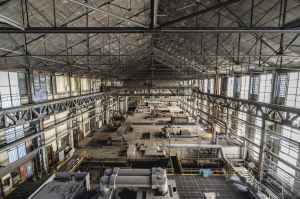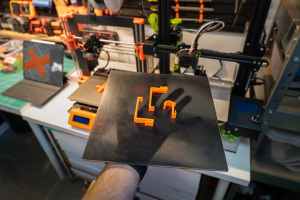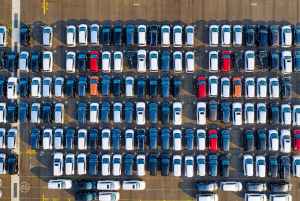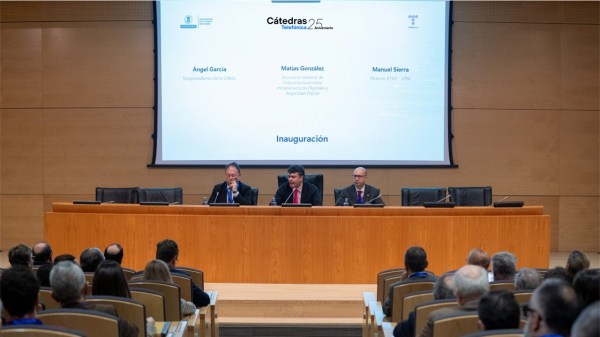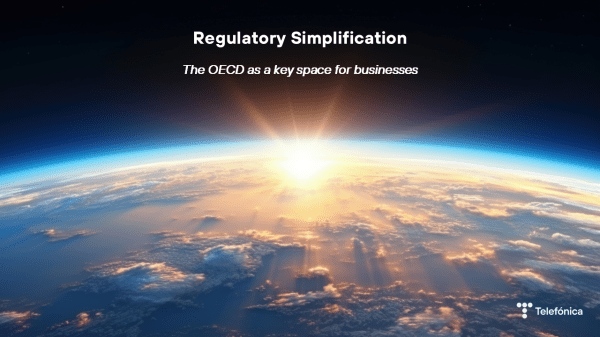Telefónica Public Policy & Telefónica España Regulatory teams
We believe in Smart Cities. We are transforming cities in Spain making them more efficient, responsible, sustainable, and ultimately, smarter. We are leading multiple smart city projects to tackle a diverse range of variables – which undoubtedly improve and change the ways their citizens live and work -, such as:
• sustainability and energy efficiency
• mobility and transport
• citizen services and security
• competition and economics
In Seville, Telefónica, together with the University of Seville and the companies Thales, Portel and Isotro, are digitalizing the cargo port. In particular, they will deploy innovative tools in the city that systematise the relationship between the cargo being carried, the vehicle transporting it and the infrastructure of the port, with the aim of improving logistical efficiency. In this project, Telefónica will provide a network of multi-technology communication (WiMax, satellite, fibre optic and 4G), that combines the transport of the information collected by sensors installed in the containers, vessels, trains and automated traffic management systems and a horizontal platform according to FIWARE standards with the aim of collection, analysis and presentation of the combined information from the different sensors and subsystems that make up the solution.
In Logroño, Telefónica has been working since October 2014 on a project to centralise Traffic, Street Lighting and the 010 citizen information helpline public services, centralising the information in a smart city platform named Plataforma Smart, which can also be seen at the World Congress of smart cities in Barcelona.
The Smart City project in Valencia is probably one of the most innovative. This is the first award in Spain, to Telefónica, of a Smart City platform designed according to the specifications and standards laid out by the European Union in the Future Internet (FIWARE). The Internet of Things platform is offered as a service from the Telefónica cloud, and combines the worlds of the Internet of Things and Big Data, enabling Valencia to undergo the process of transformation of urban services and the application of Open Data policies that favor the establishment of open and participatory innovation processes.
In Zaragoza, in coordination with the local council, we are implementing the Smart Step solution already marketed in the UK with O2. The project consists of extracting data, on an anonymous and aggregate basis, in order to learn where the population moves and where its origin and source are, and in this way, to optimise transport through smart planning to provide citizens with better services.
In Barcelona, we are collecting information about tourists who visit the city in order to learn about the tourism the city attracts, while always protecting the privacy of the tourists. With the data that is extracted, better services can be offered to tourists and the offer can be adapted to their needs.
We are developing Smart Santander, which was a pioneering project for Telefónica in Spain. The project was financed by the European Commission, and Santander became a benchmark for large smart cities in the development of infrastructure, with the provision of a platform that allows experimentation and research in architecture, technology, applications and services by the Internet of Things in the context of a smart city. Thanks to the infrastructure developed together with this platform, services such as smart parking, environmental monitoring, smart irrigation, augmented reality, smart metering, and traffic intensity monitoring have been developed.
Other initiatives that stand out, and that Telefónica is presenting during the Smart City Expo World Congress, are:
• the management pilot of street lighting by the Malaga local council
• the solution for energy efficiency in buildings with the government of Cantabria
• the Open Data platform by the Santander city council
• the NFC payments in transport by the Asturias Transport Consortium
In Telefónica, we believe that people, businesses, cities and society can be more and do more thanks to technology. We all know how technology has changed, and will continue to change, our way of living and working. The digital revolution has not only transformed the way in which we communicate, but is also changing and will further transform the relationship of cities with their inhabitants.
We want to contribute to this change too, and for this reason, we are working with the local councils of these cities to lead this new industrial revolution in the cities.

